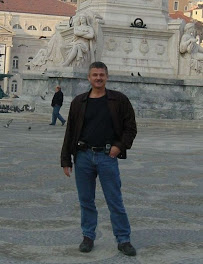"as reported in the Montreal Gazette, one Board member e-mailed members and potential members urging them to register their vote to re-elect the current Board members and prevent CCSVI supporters from getting on the Board."So it appears that the entire slate of directors favouring the status quo were elected. However, that is not the spin put on it in the MSSC message from the chair of the national Board of Directors, Linda Lumsden:
Clearly the topic of CCSVI has been one that has raised a spectrum of opinions. I offer the words of board member James Orr to provide perspective:So there will be CCSVI working group that will probably include "esteemed" researchers like Freedman, clinical neurologists and Board Members who are fine with the MSSC's current approach, which includes some small funding for peripheral issues related to CCSVI diagnosis (not treatment). I wonder if the CCSVI working group will include a "tame" vascular specialist, for appearances? Interestingly, the UBC/Saskatoon will receive some funding, though the McMasters group will not receive any. And none of the funding will be aimed at studying the treatment itself, or at studying people who have been treated (of which we now have quite a cohort in Canada, most of whom were treated in Poland). It appears to me that this means that anyone hoping to see treatment available in Canada in anything less than 5 years will be disappointed, if these people get their way.
“I hope and believe that today’s annual general meeting shows that all of us impacted by MS have more similarities than differences. Anyone who has a loved one with a disease as difficult as MS would want nothing but the best for them. My wife Adriana progressed through various stages of MS and now requires the support of long term care, even though she is still young and competent. She has experienced many treatments and many disappointments. If the CCSVI procedure were available across the country as part of a trial, Adriana would want to try it as soon as possible, assuming she was cleared of any medical risks. We all want a life without MS or at least a life improved. I hope that we can all work together to make this happen.”In this spirit, the national board of the MS Society will be convening a special CCSVI working group, chaired by a member of the board. The group will include persons with MS, members of the clinical and research community and members of the national board. The group will provide for continuing dialogue about the important issues of CCSVI research and treatment and will inform the work of the board.
Am I being too cynical? I hope I am and would appreciate it if someone could provide me with information that would quell my apprehensions.




Want to correct your misinformtion -- Dr. Tony Traboulsee from the UBC MS Clinic did receive funding for his research project into CCSVI.
ReplyDeleteYes, thank you, I caught that in a TiMS discussion and was correcting that there and here when your comment came up.
ReplyDeleteA lot if not all MS patients can't wait 5 years. There seems to be a lot of foot dragging, lip service, maintain the status quo going on. I try not to subscribe to conspiracy theories but it is becoming more difficult every day. If the treatment for CCSVI were new and revolutionary I could understand the need for more research. But it is not new. It is a safe well practiced long-standing medical procedure that has far less negative implications than do all the expensive drugs of questionable efficacy. Any MS sufferer will tell you that relief of any symptoms would be welcome. Time for the MS society to step up to the plate and live up to their mission statement. Time for the old boys research community to step back and acknowledge that their may be other factors at play and to give them a chance.
ReplyDelete